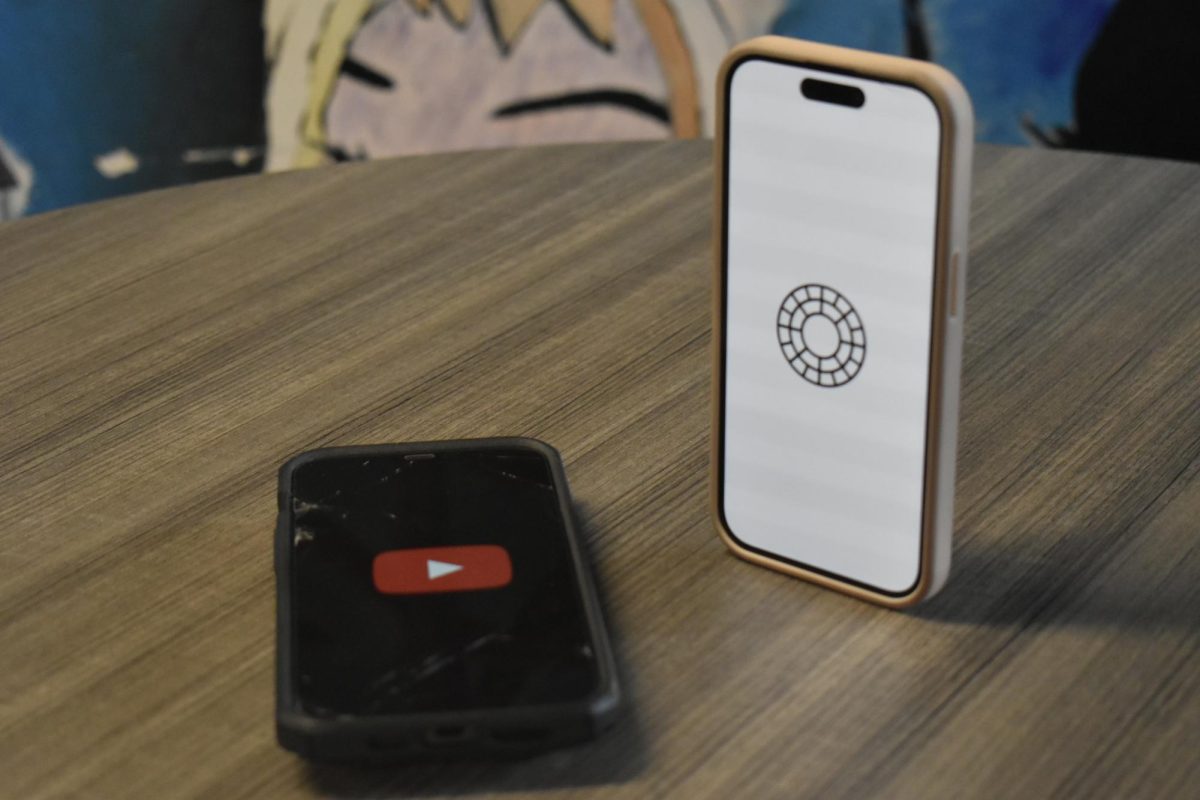Given the many difficulties of 2020, we have neglected one particular tragedy for students: all our work is homework, the majority of that being independent assignments. As we advance in our academic careers, we tend to feel more stress, have less free-time and often, decreased motivation. For these reasons, we have slowly been working for the abolition of homework, but this recent phenomena has led to the supreme opposite. While education is greatly important, after months of being virtual, and with the sun setting from 4:30 p.m., staying productive and studying attentively has more than ever felt like an impossible, endless task.
As the cold weather and early nights further engulf us, here is a list of 10 tips to stay afloat of your at-home studying.
Lifestyle:
1. Maintain a healthy sleep schedule: Since we started school online this year, we didn’t really have a proper transition, so if you’re like me, your summer sleep cycle may have carried over into fall. This means staying up the entire night, when being productive feels illegal and as a result, getting exhausted at times when your unwavering focus is crucial. Your quality of learning will be greatly enhanced if you trick yourself into waking up early, as you would for a normal school day. This requires going to sleep earlier as well. Waking up three and a half minutes before class starts still seems like the glamorous option, but in the long run it will make simple tasks, like focusing in class, more difficult.
2. Study while the sun is out: When the sun sets, everything feels like a chore. Especially when it’s cold, and against your better judgement you find yourself cozied up by a fireplace with hot cocoa, rewatching your favorite movie. Since the days are shorter anyways, plan to finish all (or most) of your homework before and shortly after school, while the sun is still out. That way, it won’t drag out into the night and feel infinite and more exhausting than it needs to be. This would require focus and disciplined studying, but the sooner you are done, the more undisturbed (and guilt-free) movie time you will have.
3. Take walks (outside, if you can): As we approach what feels like month 500 of quarantine, the excitement of going for “family walks” has slightly lost its charm. But alas, COVID-19 cases are rising, and walking is a great way to get outside. First thing in the morning, between school and homework or even in the evening before dinner–whenever you can fit it in your schedule–try to prioritize walking. You will be more energized and your mind will be stimulated from you physically moving. If you stay in the same spot, it is difficult to stay attentive and absorb information no matter how hard you stare at a book or screen. By walking, changing up your scenery with nature and fresh air, you will return to your books with a clear perspective.
4. Study outside your virtual school setting: Complete your homework and study in a different spot, or even different room, than where you do your virtual school. This will help your mind separate in-class work from “homework” so that you don’t feel like you have been sucked into a vortex of endless studying. That said… don’t study in bed. Just don’t. It’s tempting, but your location can make a world of difference. Try sitting at a table, desk, your kitchen table or even your floor. Essentially, put yourself in a position that forces you to sit up right and be mildly uncomfortable. The blankets and pillows are all fun and games until you blink and you’re watching Netflix at 2:00 a.m.
5. Make lists: With assignments coming from Google Classroom, Schoology and announcements on Zoom, making a paper checklist will help you collect your agenda onto one sheet. Whether you typically use a planner or not, before studying, create a quick checklist for what you need to accomplish. That way, you can order your subjects or tasks by what is most urgent, and experience the satisfaction of crossing items off a list. Also, the more organized you are, the less likely you will be to forget about assignments.
While studying:
1. Read things aloud: Having been stripped from a typical classroom setting, and stuck behind a monitor all day with muted mics, our minds tend to wander off. Then, when we have to study independently, silent reading can get quite dull and new material doesn’t always stick. However, reading out loud, over-enunciating and reading passionately can actually help increase your memory of that subject. Try walking around while you study, pretending to teach it to someone else or even actually teaching your siblings to make sure that you understand and enhance your own memory. Even though you may be studying alone, try to resist doing it all in your head silently.
2. Handwrite notes: Try to use different colored pens and sticky notes to make your notes more interesting. If you don’t feel like switching colors while you write, then take a few minutes afterwards to highlight important points. Not only will your eyes get a break from the screen light, but studies show that writing with your hand is a great tactic for memorizing material.
3. Make it enjoyable: Studying does not have to be painful. Take advantage of being home and make yourself as comfortable and relaxed as possible, so that you won’t be subconsciously always trying to avoid work. Before you sit down to study, try to eat something and grab a cup of ice-cold water, coffee or tea, if you like caffeine. That way, you won’t be tempted to get up for a drink and get distracted from there; you’ll have something to keep you both entertained and awake. If you enjoy scented candles, plan to light a candle or two for a more pleasant ambiance. If you enjoy a little background noise, create a playlist specifically for studying, so that you won’t have to keep changing the songs and get off track. If you get distracted by music with words, you can try listening to instrumental songs or any alternative to music. Experiment and see what you like, but plan for a little more than to sit and study, so that you’ll be more likely to commit to it.
4. Put away your phone: No matter how much you prepare or how long you sit for, if your mind is not present, it will be hard to get things done. My weakness and greatest distraction is my phone. I’ve tried the tricks: flipping it over and powering it off, putting it on Do Not Disturb, setting time limits for apps and more. But the way I have been best able to avoid my phone is by physically not giving myself access to it. Out of sight, out of mind. It feels unnecessary, but the more extra you are about removing distractions and creating a proper environment, the more quickly you will finish your work.
5. Utilize timers: Given our at-home learning circumstance, there is not a very uniform method for how we should organize ourselves and our time. Since we already do school from home, studying more can feel overwhelming when assignments pile up and the work is seemingly never-ending. Setting a timer will give your brain the satisfaction and relief beforehand that after “x” minutes of hard work and focus, you will be rewarded with a break. The pain will end. This could mean taking a 2-minute break every 10 minutes, a 5-minute break every 30 minutes or a 15-minute break every hour–whatever works for you. I highly recommend setting timers so that you can study peacefully knowing that it will be over soon.
This year has continuously humbled traditional grading and standardized testing. Sometimes exams get cancelled, or they don’t go as planned, and the world moves on because at the end of the day, they’re numbers, they’re not you. Grades and scores do not reflect your value as an individual nor what you have to offer. Nevertheless, if you are struggling with productivity and you wish to make a difference, start by improving your daily habits. Soon you will be able to accomplish anything and everything; happy studying.





![There are more than 20 open cardio machines at Crunch Fitness. I enjoyed the spacious environment at Crunch, a sentiment that was shared by sophomore Sanjana Daggubati. “[Going to] Crunch Fitness was the right decision because [it] feels more professional. Crunch’s workers are laid back, but not to the point where they don't care,” Daggubati said.](https://pwestpathfinder.com/wp-content/uploads/2025/09/IMG_5242-1-1200x900.jpg)

![Various empty Kit Kat wrappers crowd the desk, surrounded by scoring sheets. While production of Kit Kat flavors in the U.S. is limited, Nestlé, the owner of Kit Kat, manufactures hundreds of unique flavors in Japan, including the flavors ocean salt and passion fruit. “I thought there [were] some interesting flavors, and a lot of them were really unexpected,” senior Elle Levesque said.](https://pwestpathfinder.com/wp-content/uploads/2025/09/image-2.png)


![Pantone’s selection of the 2025 Color of the Year is revealed: Mocha Mousse. Ceramics teacher Ashley Drissell enjoys this year’s selection. “Maybe it’s the name but [Mocha Mousse] reminds me of chocolate and coffee. It makes me hungry. It’s very rich and decadent,” Drissell said.](https://pwestpathfinder.com/wp-content/uploads/2025/02/DSC_0015-1200x800.jpg)


